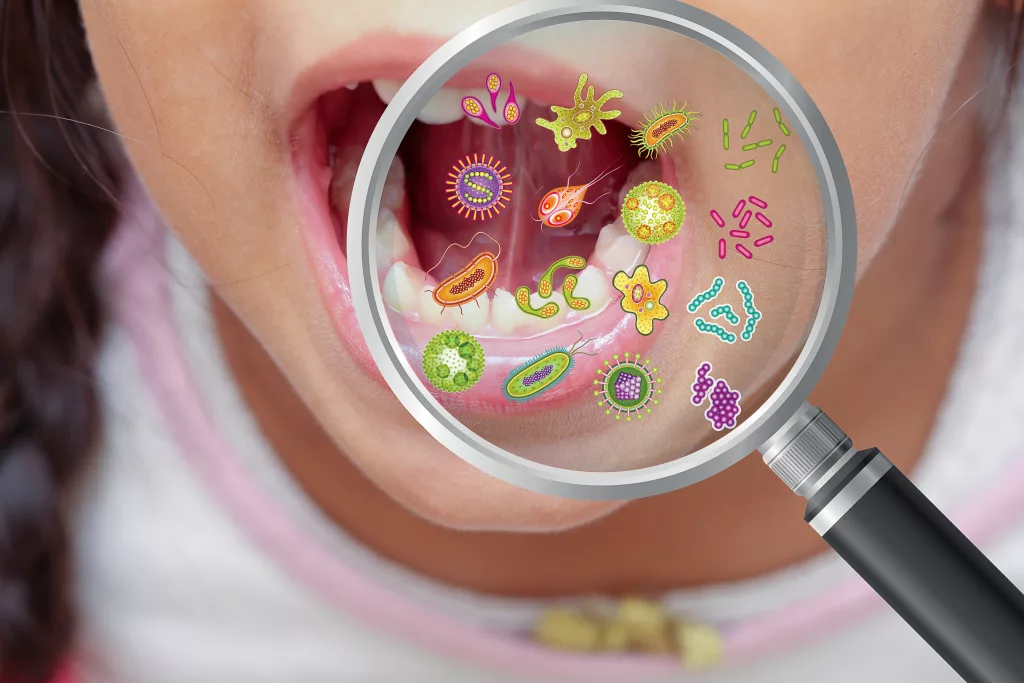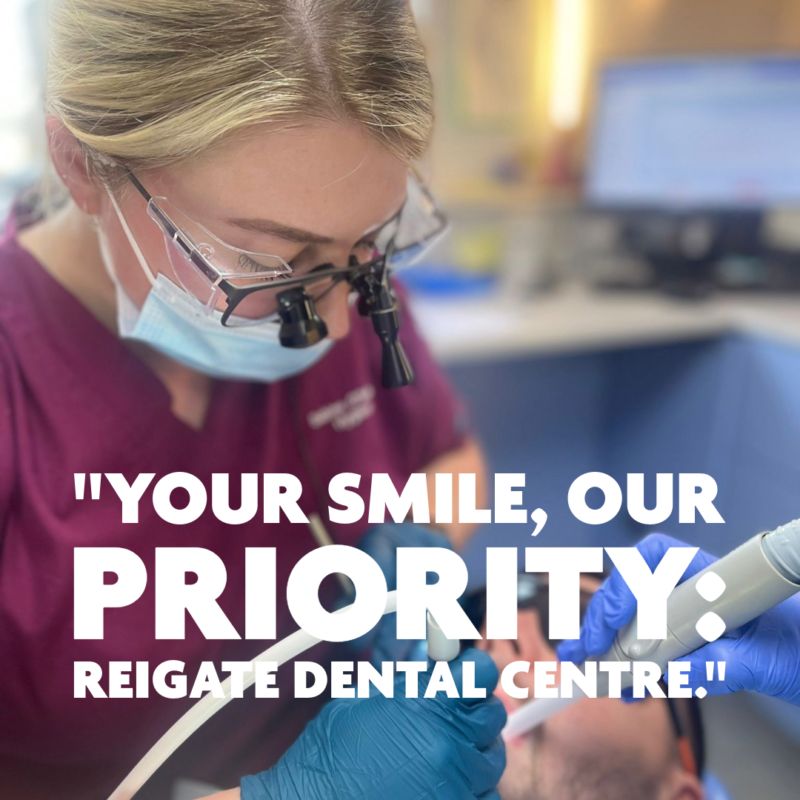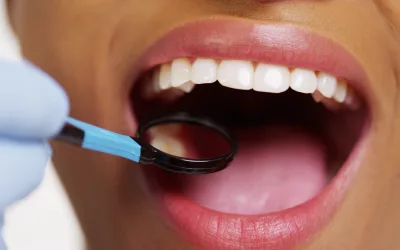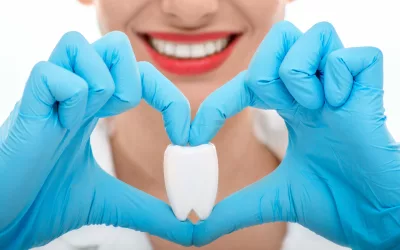
Let’s talk about diversity!
The mouth is a complex ecosystem with diverse microorganisms, including bacteria, viruses, and fungi. While some microorganisms can cause dental problems like tooth decay and gum disease, many benefit our health.
For example, some bacteria in the mouth produce enzymes that help break down food and aid digestion. Other bacteria help to keep harmful bacteria in check by competing for resources and space. Some bacteria even produce substances that help to strengthen tooth enamel and prevent tooth decay.
However, when the balance of microorganisms in the mouth is disrupted, harmful bacteria can grow unchecked and cause dental problems; this is why it’s essential to practise good oral hygiene, including brushing and flossing regularly and visiting the dentist for regular cleanings and check-ups.
Protection against harmful bacteria: Certain beneficial bacteria in the mouth help inhibit harmful bacteria’s growth by competing for resources and producing antimicrobial substances.
“mouth bacteria and heart disease”, “Mouth bacteria name”, “Mouth bacteria Alzheimer’s” “Mouth bacteria test”, “Mouth bacteria symptoms”
The mouth has these microorganisms that form what is known as the oral microbiome.
While some bacteria in the mouth can be harmful and contribute to dental issues like tooth decay and gum disease, many bacteria in the oral microbiome are beneficial and play essential roles in maintaining oral health. Some of the beneficial functions of these bacteria include:
- Protection against harmful bacteria: Certain beneficial bacteria in the mouth help inhibit harmful bacteria’s growth by competing for resources and producing antimicrobial substances.
- Aid in digestion: Some bacteria assist in the initial breakdown of food particles, aiding in digestion.
- Regulation of oral pH: The balance of bacteria in the mouth influences the pH levels. Beneficial bacteria can help maintain a slightly acidic environment, vital for preventing the overgrowth of acid-producing bacteria that can lead to tooth decay.
- Strengthening tooth enamel: Certain bacteria produce substances that can strengthen tooth enamel and help protect against decay.
Maintaining good oral hygiene practices, such as regular brushing, flossing, and routine dental check-ups, helps keep the oral microbiome balanced and promotes oral health by managing harmful and beneficial microorganisms in the mouth.
“dog mouth bacteria harmful”, “does baking soda kill mouth bacteria” “Dog mouth bacteria”, “Good mouth bacteria”, “Can mouth bacteria cause stomach problems”
The delicate balance
Certain beneficial bacteria in the mouth play a crucial role in maintaining oral health by inhibiting the growth of harmful bacteria through various mechanisms. One meaningful way they do this is by competing for resources and space.
Beneficial bacteria establish themselves in different niches within the mouth, such as the teeth, gums, and tongue. By occupying these spaces, they prevent harmful bacteria from colonising and thriving. This competition for resources limits the availability of nutrients and inhibits the growth of potentially harmful bacteria.
Additionally, some beneficial bacteria produce antimicrobial substances that can directly inhibit the growth of or kill harmful bacteria. These antimicrobial substances include enzymes, organic acids, and other antimicrobial compounds. By producing these substances, beneficial bacteria create an environment that is less favourable for the growth of harmful bacteria.
The delicate balance between beneficial and harmful bacteria in the oral microbiome is vital for maintaining oral health. Disruptions in this balance, such as poor oral hygiene practices or certain medical conditions, can lead to an overgrowth of harmful bacteria and an increased risk of oral health issues like tooth decay and gum disease.
Taking care of your oral hygiene by brushing your teeth regularly, flossing, and maintaining a balanced diet can help promote the growth of beneficial bacteria and maintain a healthy oral microbiome.
oral bacteria, diversity, dental health, oral microbiome, balance, impact, dental hygiene
Bacteria aid digestion.
Some bacteria in the mouth play a role in aiding digestion by assisting in the initial breakdown of food particles.
The digestion process begins in the mouth with food’s mechanical and chemical breakdown. While chewing, saliva mixes with the food, helping to moisten and soften it for easier swallowing. Saliva contains enzymes, such as amylase, that begin the chemical breakdown of carbohydrates into simpler sugars.
Certain bacteria in the mouth contribute to the digestive process by producing enzymes that assist in breaking down specific components of food. For example, some bacteria can produce enzymes called proteases that help break down proteins into smaller peptides. Other bacteria may produce lipases that aid in the breakdown of fats.
By breaking down food particles into smaller components, these bacteria contribute to the initial stages of digestion before the food reaches the stomach and encounters further digestive processes.
It’s important to note that while the mouth plays a role in the initial breakdown of food, most digestion occurs in the stomach and the small intestine. However, the presence of these bacteria in the mouth and their initial enzymatic activity can influence the overall digestive process.
“komodo dragon mouth bacteria”
Unleash Your Smile’s Potential with Our Exclusive Airflow and Hygiene Package!
Experience the ultimate dental care with our exclusive Airflow and Hygiene package!
Discover the power of dynamic dental diversity while enjoying a thorough cleaning and revitalizing airflow treatment. Don’t miss this opportunity to enhance your oral health and achieve a dazzling smile. Schedule your appointment now and elevate your dental care to the next level!
“Does salt water kill mouth bacteria” “Does alcohol kill mouth bacteria” “How to increase good mouth bacteria”
-
Airflow Dental Hygiene Therapy
£150.00Original price was: £150.00.£95.00Current price is: £95.00. -
Airflow, Hygiene and Whitening Package
£340.00Original price was: £340.00.£170.00Current price is: £170.00. -
Hygiene 30 Scale & Polish
£70.00
Bacteria levels affect ph balance.
Bacteria in the mouth influence the pH levels. Beneficial bacteria can help maintain a slightly acidic environment, essential for preventing the overgrowth of acid-producing bacteria that can lead to tooth decay.
The balance of bacteria in the mouth significantly impacts the pH levels, or acidity, within the oral cavity. Maintaining the proper pH balance is crucial for oral health, explicitly preventing tooth decay.
When we consume sugary or carbohydrate-rich foods, the bacteria in the mouth feed on these substances and produce acids as byproducts; the acids, mainly lactic acid, can lower the pH level, making the mouth more acidic. This acidic environment can demineralise tooth enamel, the initial stage of tooth decay.
However, beneficial bacteria in the mouth help regulate the pH levels by producing substances that counteract acid production. They can produce buffers, such as bicarbonate ions, that neutralise acids and help restore a more balanced pH; this is especially important in preventing the overgrowth of acid-producing bacteria that can contribute to tooth decay.
By maintaining a slightly acidic environment, the beneficial bacteria create less favourable conditions for the growth of harmful bacteria. Acid-producing bacteria thrive in an acidic environment, while some beneficial bacteria can tolerate and even benefit from a slightly more acidic pH.
Promoting a balanced oral microbiome through good oral hygiene practices, a healthy diet, and regular dental check-ups can help support the presence of beneficial bacteria and maintain the optimal pH balance in the mouth, reducing the risk of tooth decay.
“kill mouth bacteria naturally”, “mouthwash that kills bacteria”, “mouthwash kills good bacteria”, “mouthwash that doesn’t kill good bacteria”
Can certain bacteria produce substances that can strengthen tooth enamel and help protect against decay?
Bacteria in the mouth do not directly produce substances that strengthen tooth enamel. The strength and integrity of tooth enamel primarily depend on the minerals and proteins in the enamel.
Tooth enamel comprises hydroxyapatite, a mineralised matrix that strengthens and protects teeth. Enamel is not a living tissue and does not contain bacteria.
However, bacteria in the mouth can indirectly impact tooth enamel health. When we consume sugary or starchy foods, bacteria in the mouth metabolise these substances and produce acids as byproducts.
These acids can demineralise the enamel, weakening it over time and leading to tooth decay.
On the other hand, beneficial bacteria in the oral microbiome can help prevent tooth decay by contributing to a balanced environment. They can compete with harmful bacteria for resources and space, reducing plaque formation, a sticky film of bacteria that adheres to the teeth.
By controlling the growth of harmful bacteria, beneficial bacteria indirectly support the health of tooth enamel.
So you want to strengthen your tooth enamel and protect against decay. Then it’s crucial to maintain good oral hygiene practices, such as regular brushing with fluoride toothpaste, flossing, and visiting the dentist for check-ups and cleanings.
Additionally, a balanced diet low in sugary and acidic foods can help promote healthy tooth enamel.
of “mouthwash kills most bacteria” and “bad mouth bacteria”
What are these bacteria called?
Various types of bacteria are found in the oral cavity, collectively comprising of the oral microbiome. Some of the common bacteria found in the mouth include:
- Streptococcus mutans: This bacterium is known for its role in tooth decay. It produces acids as a byproduct of sugar metabolism, contributing to the demineralisation of tooth enamel.
- Streptococcus salivarius: This bacterium is considered beneficial and can help inhibit the growth of harmful bacteria. It produces enzymes that break down substances in the mouth and helps maintain a healthy oral environment.
- Actinomyces: These bacteria are common dental plaque inhabitants and can be beneficial and harmful. Some species of Actinomyces aid in the breakdown of carbohydrates, while others can contribute to dental caries and periodontal disease if they overgrow.
- Lactobacillus: These bacteria are involved in the fermentation of carbohydrates in the mouth. They can contribute to acid production, which may lead to tooth decay if their numbers are excessive.
- Porphyromonas gingivalis: This bacterium is associated with periodontal disease. It can colonise below the gum line and contribute to the development of gum inflammation and tissue damage.
It’s important to note that these are just a few examples, and the oral microbiome consists of a diverse array of bacteria, fungi, viruses, and other microorganisms. The balance and interactions between various species in the oral microbiome are essential for oral health.
Regular oral hygiene practices like brushing, flossing, and visiting the dentist help maintain a healthy balance within the oral microbiome and prevent oral health problems.
How do they get into the mouth?
Bacteria enter the mouth through various means. Here are some common ways bacteria can populate the oral cavity:
- Vertical Transmission: Bacteria can be acquired from parents or caregivers during infancy. Infants can acquire oral bacteria from their caregivers by sharing utensils, kissing, or cleaning pacifiers with their mouths.
- Food and Drink: Bacteria can enter the mouth by consuming contaminated food and drinks. Improper food handling or unsanitary conditions can introduce bacteria into the oral cavity.
- Airborne Transmission: Bacteria can be present in the air, and some can settle in the mouth when we breathe. Coughing, sneezing, and even talking close to someone can expose us to bacteria.
- Sharing Personal Items: Personal items like toothbrushes, utensils, or cups can transfer bacteria from one person to another, mainly if oral hygiene practices are not optimal.
- Dental Procedures: Certain dental procedures, such as dental cleanings, fillings, or surgeries, can introduce bacteria into the mouth. Dental professionals take precautions to minimise the risk of infection during these procedures.
- Poor Oral Hygiene: Inadequate oral hygiene practices, such as infrequent brushing or flossing, can allow bacteria to accumulate in the mouth and contribute to the growth of harmful bacteria.
Once bacteria enter the mouth, they find a suitable environment to colonise, attach to surfaces like teeth and gums, and form dental plaque.
Dental plaque is a sticky film that contains a diverse community of microorganisms, including bacteria, which can cause dental problems if not adequately managed through good oral hygiene practices.
Maintaining good oral hygiene, including regular brushing, flossing, and dental check-ups, is crucial for managing the bacterial population in the mouth and promoting oral health.
“mouth flora bacteria”, “mouth ulcer bacteria”, “good mouth bacteria”, “harmful mouth bacteria”, “mouth kill bacteria”
The mouth is a complex ecosystem with diverse microorganisms, including bacteria, viruses, and fungi.
While some microorganisms can cause dental problems like tooth decay and gum disease, many benefit our health.
For example, some bacteria in the mouth produce enzymes that help break down food and aid digestion. Other bacteria help to keep harmful bacteria in check by competing for resources and space. Some bacteria even produce substances that help to strengthen tooth enamel and prevent tooth decay.
However, when the balance of microorganisms in the mouth is disrupted, harmful bacteria can grow unchecked and cause dental problems. This is why practising good oral hygiene is essential, including brushing and flossing regularly and visiting the dentist for regular cleanings and check-ups.
Share this:
- Click to share on Twitter (Opens in new window)
- Click to email a link to a friend (Opens in new window)
- Click to share on LinkedIn (Opens in new window)
- Click to share on Reddit (Opens in new window)
- Click to share on Tumblr (Opens in new window)
- Click to share on Pinterest (Opens in new window)
- Click to share on Pocket (Opens in new window)
- Click to share on Telegram (Opens in new window)
- Click to share on WhatsApp (Opens in new window)
Related
General Private Dental Prices
| Service | Price |
|---|---|
| Examination / Consultation | £70.00 |
| Scale and polish | from £70.00 |
| Dental hygiene appointment | £80.00 |
| X-ray | £15.00 |
| White filling | from £135.00 |
| Teeth whitening | £479.00 |
| Porcelain crown | from £650.00 |
| Veneers | from £695.50 |
| Dentures | from £850.50 |
| Root Canal Treatment | from £430.00 |
| Implant & Crown | from £2689.00 |
| Extraction | from £170.00 |
| Emergency Appointment | £130.00 |
Contact Us.
Hours & Info
09:00 - 17:00
Closed for lunch, 13:00 - 14:00
Categories
- Cosmetic Dentistry
- Dental Care Plans
- Dental Crowns and Bridges
- Dental Exams and Cleanings
- Dental Hygiene
- Dental Implants
- Dentures and Partial Dentures
- Emergency Dentistry
- Endodontics
- General
- General Dentistry
- Gum Disease Treatment
- health and wellbeing
- Invisalign
- NHS Dentist
- Save Money
- Teeth Whitening
- Tooth Extraction
- Toothache
- Toothpaste
To find out more, including how to control cookies, see here: Cookie Policy
Emergency?!
Is a dental emergency causing you pain or discomfort? Take action right away by contacting Reigate Dental Centre. Our office is open Monday through Saturday from 9 am to 5 pm. You can call us on 01737 224 870 or send us a message via the contact form below, and we’ll endeavour to respond as soon as possible.
Don’t wait with a dental emergency—the sooner you call and see us, the better. We’re committed to promptly treating any urgent dental issue with the highest-quality care and compassionately.







